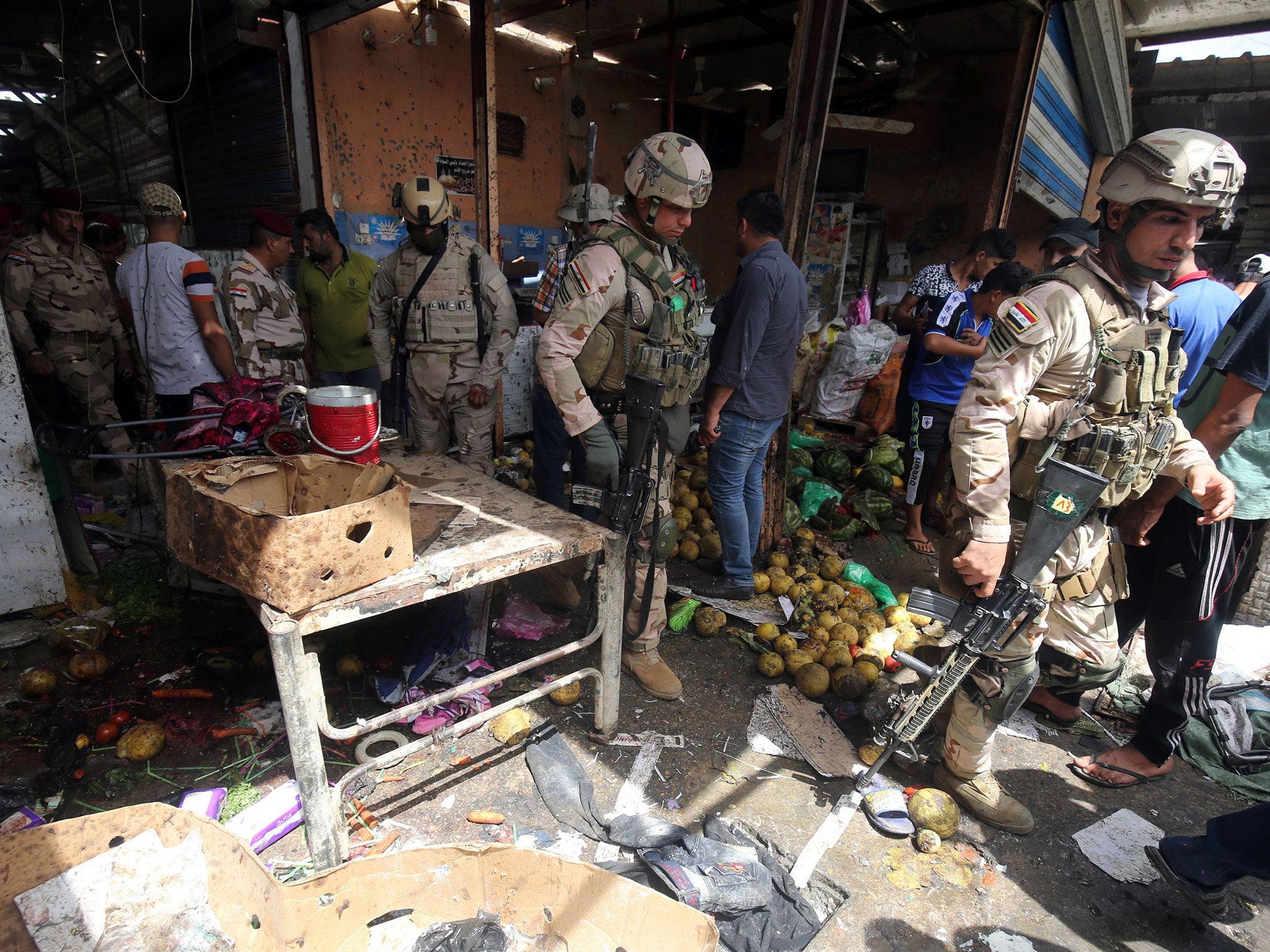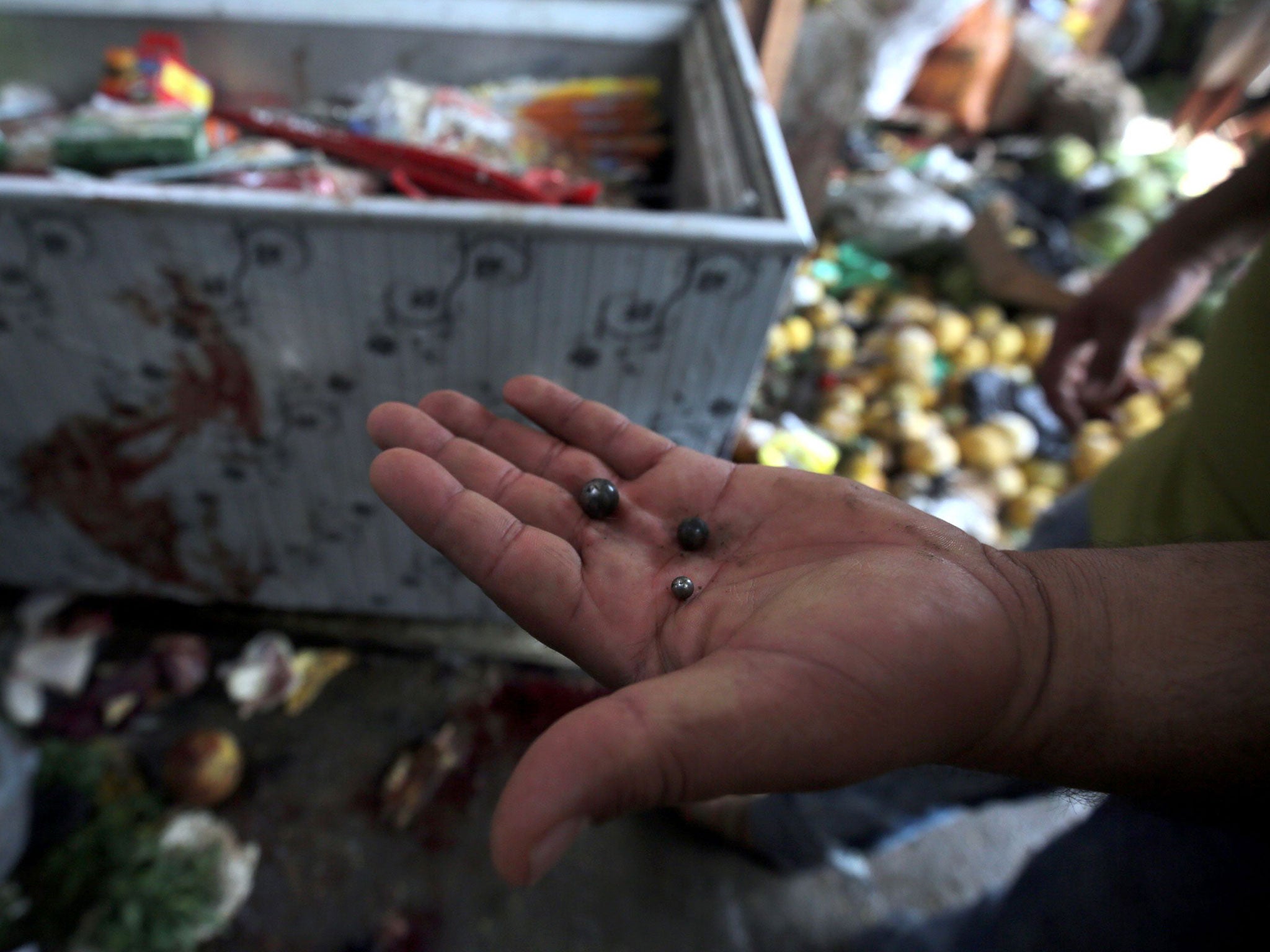Baghdad attacks: at least 69 killed in suicide attacks and car bombings in Iraq capital
More than 140 people have been killed in a week of terror attacks in Iraq

At least 69 people have been killed in four bombing attacks on Shia areas of Baghdad as a wave of almost daily massacres by Isis continues.
An explosion in a market in the Iraqi capital's al-Shaab district left 34 people dead and 75 injured, while a car bomb in the al-Rasheed area killed eight and wounded another 22 victims, according to police and medical sources.
In al-Shaab, a roadside bomb exploded outside concrete blast walls surrounding the open air market, before a female suicide bomber blew herself up in a crowd of people who gathered to help the initial victims.

Later, a suicide car bomb was reported at another market in Sadr City, which was targeted in the deadliest day of attacks last week, killing at least 18 people and injuring 35.
In a fourth attack, a suicide bomber killed nine people at a restaurant in the Habibia district.
Isis hailed its "martyrdom operations" in al-Shaab and Sadr City but there was no immediate claim of responsibility for the two other blasts.
Previous propaganda statements said the militants were targeting gatherings of Shia militias known as the Popular Mobilisation Committees but officials said civilians, including women and children made up the majority of victims.
More than 100 people were killed in 24 hours of blasts that started on Wednesday morning with a car bomb in a crowded market, followed by two more blasts in the afternoon and a twin suicide bombing at dawn the following day.
On Thursday night, Isis militants burst into a café filled with Real Madrid fans in the city of Balad and opened fire, killing at least 13 people.
Four separate bomb attacks on Sunday left at least 15 victims dead on the fifth straight day of atrocities claimed by the terrorist group.
The same day also saw an Isis assault on a natural gas plant north of Baghdad, sparking hours of battles with security forces before militants were driven back.
The so-called Islamic State is battling to retain control of territory in northern and western Iraq, where it has suffered land losses amid an advance by Iraqi forces, Kurdish Peshmerga and air strikes by the US-led coalition.
The Soufan Group, a US-based intelligence firm, warned that terror attacks would only increase with the approach of the holy month of Ramadan, continuing political deadlock in Iraq and military pressure Isis is facing across its territories.

Analysts described car bombings as one of the terrorist group’s most tried tactics to regain momentum, aiming to inflict mass casualties, kill as many Shia as possible, provoke fear and unrest and turn all factions against the government, “allowing the group to exploit the resulting chaos”.
Shia civilians, police forces, soldiers and the security services are among those targeted by the organisation, which has declared Shia Muslims apostates and regards the Iraqi government as allies of Western “crusaders”.
The recent surge in violence has added to criticism of Prime Minister Haider al-Abadi, who already faces protests over a political deadlock on cabinet reforms.
The UN's Special Representative for Iraq, Jan Kubis, warned that the deadlock and civil unrest threatened to undermine progress in regaining territory from Isis and urged Iraqi authorities not to underestimate a “formidable and determined enemy”.
Additional reporting by agencies
Join our commenting forum
Join thought-provoking conversations, follow other Independent readers and see their replies
Comments
Bookmark popover
Removed from bookmarks